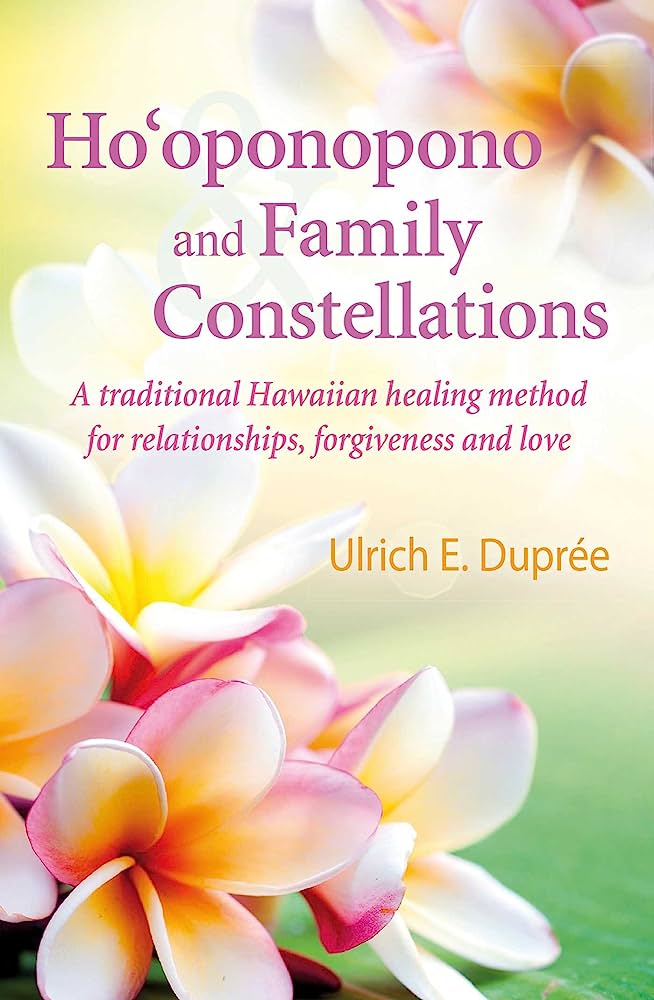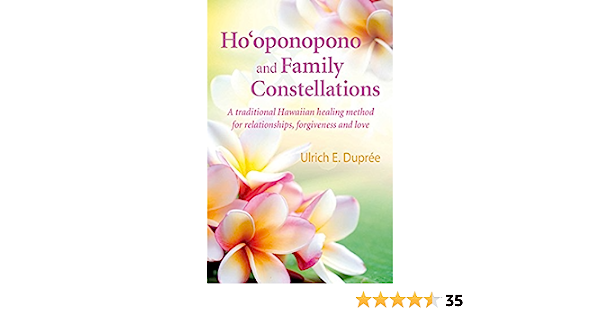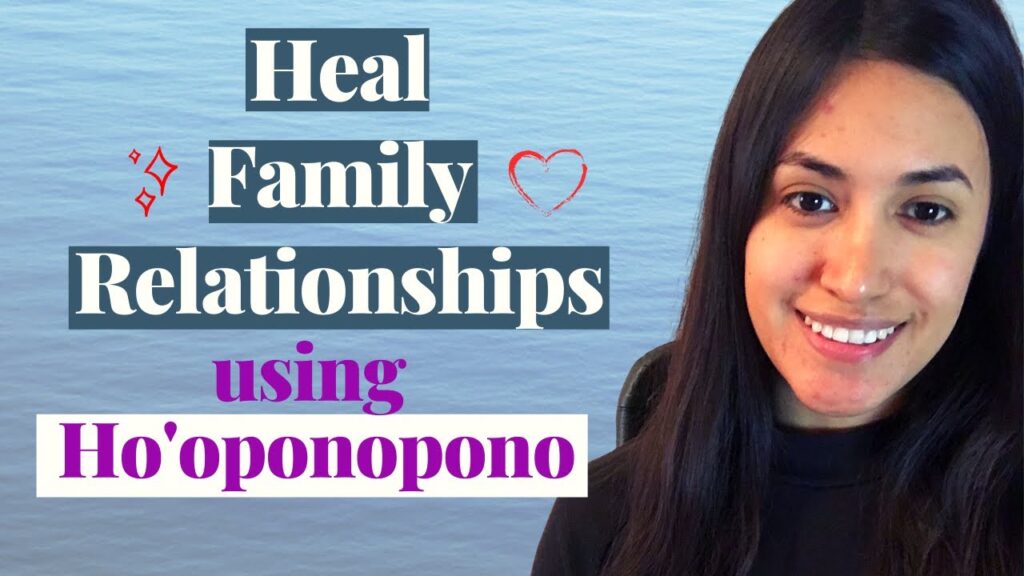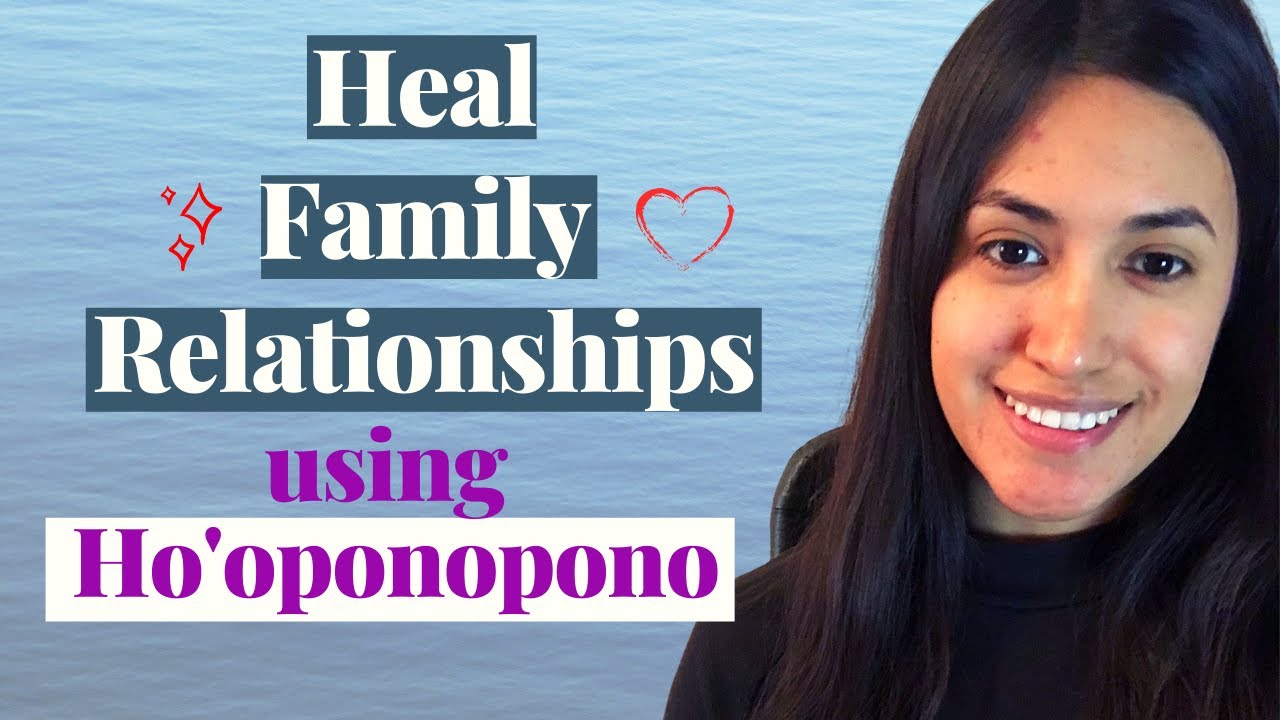Hey, have you ever found yourself in a situation where family conflicts and tensions seem to be taking a toll on your relationships? You know, those moments when you feel like the bond between you and your loved ones is slowly crumbling away? Well, I’ve got some good news for you! In this article, we’ll dive into the fascinating world of Ho’oponopono, a traditional Hawaiian practice that can help heal family bonds and restore harmony in your relationships.
Ho’oponopono is an ancient Hawaiian healing technique that focuses on forgiveness, reconciliation, and personal responsibility. It’s all about taking ownership of your thoughts, actions, and emotions, and understanding that any disharmony within your family is a reflection of your own inner conflicts. By acknowledging your role in the conflicts and offering sincere apologies for any wrongdoings, you can begin the process of healing and reconnecting with your loved ones. In the following article, we’ll explore the different steps involved in practicing Ho’oponopono and how you can apply them to your own family dynamics. So, if you’re interested in learning more about this powerful and transformative practice, keep reading!

Healing Family Bonds with Ho’oponopono
Family conflicts are an inevitable part of life. Whether it’s a small disagreement or a major rift, these conflicts can often strain relationships and create emotional distance between family members. However, there is a powerful tool that can help heal these wounds and restore harmony within the family – Ho’oponopono.
What is Ho’oponopono?
Ho’oponopono is an ancient Hawaiian practice of reconciliation and forgiveness. The word itself can be broken down into two parts – “ho’o” meaning ‘to make’ and “ponopono” meaning ‘right’. Together, they create a phrase that reflects the intention to make things right or restore balance.
Origins and Meaning
Ho’oponopono has its roots in traditional Hawaiian culture and was traditionally used to resolve conflicts within the family or community. The practice involves a gathering of family members, guided by a facilitator, to openly discuss and resolve any issues or misunderstandings that may be causing discord.
The Philosophy behind Ho’oponopono
At the heart of Ho’oponopono is the belief that we are all connected and responsible for each other’s healing and well-being. It emphasizes the importance of taking personal responsibility for our actions and the impact they have on others. By acknowledging our role in contributing to conflicts, we can start the process of healing and reconciliation.
Ho’oponopono as a Spiritual Practice
Ho’oponopono is not just a method for resolving conflicts; it is also a spiritual practice that promotes personal growth and self-awareness. It encourages individuals to look within themselves and take ownership of their emotions and behaviors. Through this process, they can cultivate forgiveness, gratitude, and love.
Recognizing Family Conflicts
Family conflicts can arise from a variety of reasons, including differences in values, expectations, or communication styles. In order to heal these conflicts, it is important to first identify them and understand their impact on the family dynamic.
Identifying Common Family Conflicts
Common family conflicts may include ongoing arguments or disagreements, tension between siblings or parents, or unresolved issues from the past. These conflicts can create a toxic environment within the family and hinder healthy communication and interaction.
Understanding the Impact of Unresolved Conflicts
Unresolved conflicts can have a profound impact on family relationships and individual well-being. They can lead to feelings of resentment, anger, and frustration, and can cause emotional distance between family members. Over time, these conflicts can erode trust and create a cycle of negativity within the family.
The Role of Communication Breakdown in Family Conflicts
One of the key factors causing and perpetuating family conflicts is a breakdown in communication. When family members struggle to express their thoughts, feelings, and needs effectively, misunderstandings and misinterpretations can occur. This can further escalate conflicts and hinder the path towards resolution.

Healing Power of Ho’oponopono
Ho’oponopono offers a powerful approach to resolving family conflicts and healing relationships. By practicing the principles of Ho’oponopono, individuals can create a space for forgiveness, reconciliation, and growth within the family unit.
Ho’oponopono as a Tool for Resolving Family Conflicts
Ho’oponopono provides a structured and guided process for addressing family conflicts. Through open and honest communication, family members can have an opportunity to express their feelings, concerns, and perspectives in a safe and non-judgmental environment. This allows for the possibility of understanding and healing.
How Ho’oponopono Promotes Forgiveness and Reconciliation
Central to the practice of Ho’oponopono is the act of forgiveness. By acknowledging and taking responsibility for our role in the conflicts, we can begin to let go of resentment and anger. Through Ho’oponopono, family members can learn to forgive themselves and each other, paving the way for reconciliation and healing.
The Holistic Benefits of Practicing Ho’oponopono
In addition to resolving family conflicts, Ho’oponopono has holistic benefits that extend to all aspects of life. It promotes inner peace, emotional well-being, and a sense of interconnectedness. By practicing Ho’oponopono, individuals can create a harmonious and loving environment not just within the family, but in all their relationships and interactions.
Steps to Practice Ho’oponopono
Ho’oponopono is a step-by-step process that involves cleansing and healing oneself and the relationship with others. By following these steps, individuals can effectively practice Ho’oponopono and experience its transformative powers.
Cleansing and Healing through Ho’oponopono
The first step in practicing Ho’oponopono is to cleanse and heal oneself. This involves acknowledging and releasing any negative emotions, thoughts, or beliefs that may be contributing to the conflicts. By letting go of these emotional burdens, individuals can create space for healing and transformation.
The Four Key Phrases of Ho’oponopono
At the core of Ho’oponopono are four key phrases: “I’m sorry, please forgive me, thank you, and I love you.” These phrases act as powerful catalysts for healing and reconciliation. By repeating these phrases sincerely, individuals can express remorse, ask for forgiveness, show gratitude, and express love.
Creating a Sacred Space for Ho’oponopono Practice
It is important to create a sacred space when practicing Ho’oponopono, both individually and within the family. This can be a physical space, such as a quiet room or garden, or a mental space created through meditation and visualization. A sacred space allows individuals to fully immerse themselves in the healing process and connect with their inner wisdom.

Applying Ho’oponopono in Family Relationships
Once individuals have familiarized themselves with the practice of Ho’oponopono, they can begin applying it to their family relationships. The following steps outline how Ho’oponopono can be initiated and embraced within the family unit.
Initiating Ho’oponopono within the Family
Initiating Ho’oponopono within the family starts with open and honest communication. Family members can gather together and express their desire to heal and strengthen their relationships. This creates a safe and supportive environment where conflicts can be addressed without judgment or blame.
Engaging Family Members in the Healing Process
It is important to engage all family members in the healing process to ensure that everyone’s voice is heard and validated. Each family member can take turns expressing their feelings, concerns, and perspectives, while others actively listen and offer support. This fosters empathy and understanding within the family.
Resolving Conflicts and Improving Relationships through Ho’oponopono
Through Ho’oponopono, family members can work towards resolving conflicts and improving their relationships. By acknowledging their role in the conflicts, expressing remorse, asking for forgiveness, and reinforcing love and gratitude, family members can start to rebuild trust and create a foundation for healthier communication and interactions.
Building Trust and Empathy
Trust and empathy are essential components of healthy and harmonious family relationships. Ho’oponopono provides a pathway towards rebuilding trust, fostering empathy, and creating a safe and supportive family environment.
The Role of Forgiveness in Rebuilding Trust
Forgiveness is a critical element in rebuilding trust. Through Ho’oponopono, family members can acknowledge past hurts, release resentment, and offer genuine forgiveness. This process creates a safe space for trust to be rebuilt and for family members to feel secure in their relationships.
Developing Empathy through Ho’oponopono
Ho’oponopono cultivates empathy by encouraging individuals to see the perspective of others and understand their experiences and emotions. By practicing active listening, validation, and compassion, family members can deepen their understanding of one another and foster a sense of empathy and connection.
Creating a Safe and Supportive Family Environment
Ho’oponopono promotes the creation of a safe and supportive family environment where all members can express themselves honestly and openly. By fostering open communication, respect, and understanding, family members can feel valued and supported, leading to stronger and healthier relationships.

Nurturing Emotional Connection
Emotional connection within the family is vital for building strong and meaningful relationships. Ho’oponopono offers tools and practices that can enhance emotional intelligence and deepen emotional bonds within the family unit.
Enhancing Emotional Intelligence within the Family
Emotional intelligence refers to the ability to recognize, understand, and manage one’s own emotions, as well as the emotions of others. Through Ho’oponopono, family members can cultivate emotional intelligence by becoming more self-aware, empathetic, and responsive to one another’s emotional needs.
Deepening Emotional Bonds through Ho’oponopono
Ho’oponopono provides opportunities for family members to express their emotions authentically and without judgment. By creating a safe and non-threatening space for emotional expression, family members can deepen their emotional bonds and foster a sense of closeness and intimacy.
Practicing Active Listening and Validation
Active listening is a key skill in nurturing emotional connection within the family. By attentively listening to one another, family members can validate each other’s experiences and emotions. This practice creates a sense of being heard and understood, which enhances emotional connection.
Breaking Generational Patterns
Inherited family patterns and behaviors can often contribute to conflicts and strained relationships. Ho’oponopono offers a way to break free from these patterns and create healthier, more fulfilling family dynamics.
Understanding Inherited Family Patterns
Inherited family patterns are behaviors, beliefs, and dynamics that are passed down through generations. These patterns can create recurring conflicts and unhealthy dynamics within the family. Through Ho’oponopono, individuals can identify these patterns and break free from their grip.
Releasing Ancestral Baggage through Ho’oponopono
Ho’oponopono recognizes that conflicts and unresolved issues can be rooted in past generations. By acknowledging and releasing this ancestral baggage, individuals can free themselves from the burden of past wounds and create positive generational change.
Breaking the Cycle of Unhealthy Behaviors
Ho’oponopono empowers individuals to break the cycle of unhealthy behaviors that have been passed down through generations. By taking responsibility for their own actions and actively working towards healing and growth, family members can create a healthier and more harmonious family dynamic.

Healing Past Traumas
Past traumas can have a lasting impact on family relationships and individual well-being. Ho’oponopono provides a pathway towards healing these emotional wounds and moving towards forgiveness and growth.
Addressing Past Traumas within the Family
Ho’oponopono creates a space for family members to address and heal past traumas. By acknowledging the pain, expressing remorse, and seeking forgiveness, individuals can begin the process of healing deeply rooted wounds that have impacted the family dynamics.
Using Ho’oponopono to Heal Emotional Wounds
Ho’oponopono’s focus on forgiveness and reconciliation offers a powerful tool for healing emotional wounds within the family. By actively engaging in Ho’oponopono practices, family members can create an environment of love, acceptance, and support that promotes healing and growth.
Moving towards Forgiveness and Healing
Forgiveness is a core aspect of Ho’oponopono and plays a crucial role in healing past traumas. Through Ho’oponopono, family members can embrace forgiveness as a transformative force, releasing resentment and pain, and nurturing healing and growth within themselves and their relationships.
Cultivating Forgiveness and Gratitude
Forgiveness and gratitude are essential elements for healing family bonds and fostering love and connection. Ho’oponopono provides practical tools for cultivating forgiveness and gratitude within the family.
The Transformative Power of Forgiveness
Forgiveness has the power to liberate individuals from the burdens of anger and resentment. Through Ho’oponopono, family members can embrace forgiveness as a transformative act, both for themselves and others. Forgiveness opens the door to healing and rebuilding relationships.
Practicing Gratitude as a Form of Healing
Gratitude is a powerful practice that can help shift focus from conflict to appreciation. Through Ho’oponopono, family members can practice gratitude by expressing appreciation for one another, acknowledging the positive aspects of their relationships, and finding joy in everyday moments.
Fostering Forgiveness and Gratitude within the Family
Ho’oponopono provides practical tools for fostering forgiveness and gratitude within the family. Family members can incorporate daily gratitude rituals, forgiveness exercises, and regular expressions of love and appreciation into their lives. These practices create a foundation for healing and nurturing family bonds.
Strengthening Family Bonds
Ho’oponopono holds the potential to strengthen family bonds and create a sense of unity and love within the family unit. By practicing the principles of Ho’oponopono, individuals can rebuild trust, foster open communication, and create rituals and practices that promote family unity.
Rebuilding Trust and Love through Ho’oponopono
Trust is the foundation of strong family bonds. Through Ho’oponopono, family members can rebuild trust by acknowledging past hurts, seeking forgiveness, and committing to open and honest communication. Love can flourish in an environment of trust, leading to stronger and more fulfilling family relationships.
Creating Rituals and Practices for Family Unity
Ho’oponopono supports the creation of rituals and practices that foster family unity. Regular family meetings, shared meals, or joint activities can strengthen bonds and create a sense of belonging. These rituals provide opportunities for open communication and the expression of love and appreciation.
The Importance of Ongoing Commitment to Healing
Healing family bonds is an ongoing process that requires commitment and dedication. Ho’oponopono is not a one-time solution but a lifelong practice. By continuously engaging in Ho’oponopono and nurturing family relationships, individuals can create a supportive and loving environment for themselves and future generations.
Enhancing Emotional Well-being
Emotional well-being is essential for the overall health and happiness of individuals and families. Ho’oponopono offers tools and practices that can improve mental and emotional health within the family unit.
Improving Mental and Emotional Health within the Family
Ho’oponopono can contribute to improved mental and emotional health within the family. By addressing conflicts, releasing negative emotions, and fostering open communication, family members can enhance their resilience, emotional intelligence, and overall well-being.
Promoting Self-Care and Self-Reflection
Ho’oponopono encourages individuals to prioritize self-care and self-reflection. By taking time for self-care activities, such as meditation or journaling, and regularly reflecting on their thoughts, emotions, and behaviors, family members can enhance their emotional well-being and contribute to a healthier family dynamic.
The Impact of Ho’oponopono on Overall Well-being
Practicing Ho’oponopono has a positive impact on overall well-being. By addressing family conflicts, nurturing emotional connection, and embracing forgiveness and gratitude, individuals experience increased happiness, peace, and contentment. This, in turn, has a ripple effect, benefiting the well-being of the entire family.
Expanding the Circle of Healing
The healing power of Ho’oponopono extends beyond the immediate family. By extending Ho’oponopono to intergenerational and extended family relationships, individuals can create a ripple effect of healing and love that spreads to the broader community.
Extending Ho’oponopono beyond Immediate Family
Ho’oponopono can be extended to include extended family members such as grandparents, aunts, uncles, or cousins. By recognizing and addressing conflicts within the extended family, individuals can contribute to healing and strengthening the bonds between relatives.
Healing Intergenerational and Extended Family Relationships
Ho’oponopono can help heal intergenerational and extended family relationships that may have been strained or broken. By applying the principles of Ho’oponopono to these relationships, individuals can create opportunities for reconciliation, forgiveness, and healing.
Spreading Healing Energies to the Broader Community
The healing power of Ho’oponopono is not limited to the family unit. By embodying the principles of Ho’oponopono, individuals can spread healing energies to the broader community. Acts of kindness, compassion, and forgiveness have a ripple effect, inspiring others to embrace healing and love.
Conclusion
Ho’oponopono holds the transformative potential to heal family bonds, promote forgiveness, gratitude, and love. By embracing Ho’oponopono as a spiritual practice, individuals can engage in a process of self-reflection, forgiveness, and healing that extends beyond the family unit. By committing to healing and nurturing family bonds, individuals can create harmonious and loving relationships that enrich their lives and the lives of future generations.
